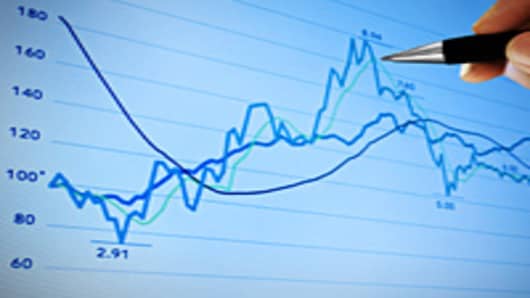Mark says it is not as easy as saying equities are selling off on this or that and believes there is a lot of action going on behind the scenes; news like the S&P downgrades are playing into this trading battle.
His advice is to get into Asian equities and industrial stocks where the growth is and avoid trying to be to smart on this story.
- Watch the full interview with Dennis Gartman above.
Currencies – Euro Even Lower
The euro is currently trading at a 12 month lows versus the dollar and while it is believed Germany is happy to see the single currency fall, a number of analysts are predicting it has far further to fall.
Steve Barrow, the Head of G10 research at Standard Bank says he is on the short side of the euro and not just against the dollar.
Hold the likes of the yen, the Australian dollar and Swedish krona, Barrow said. The euro zone crisis could also be good news for the UK pound, as it takes attention away from uncertainty surrounding the election, he added.
"The small bounce in the euro is not a major move," Gartman also said. "The trend is clearly downwards and people will continue to sell the euro and new lows will be hit later this week."
But others predict the euro will rebound. The dip below $1.32 was not as sharp a fall as some had expected, according to Chris Zwermann, the Global Strategist at Zwermann Financial.
"In my opinion if we break through $1.30 we could see a rally from here. Ultimately we could move towards 1.36 against the dollar," he predicts.
Bond Markets – Contagion Is the Whisper
Yields on Greek debt have spiked sharply in recent weeks and other members of the so-called PIIGS (Portugal, Ireland, Italy, Greece and Spain) are beginning to see their cost of borrowing rising while a flight to safety saw German bund yields fall sharply.
With America, Japan and the UK expected to issue billions onto the market every month this year, contagion is being whispered across the world.






